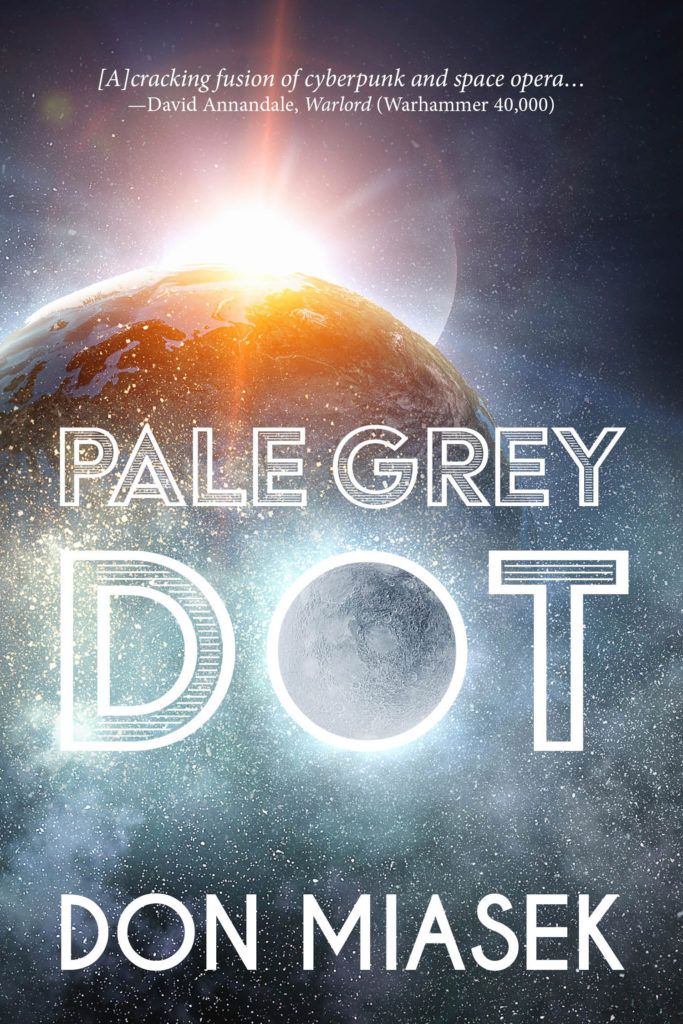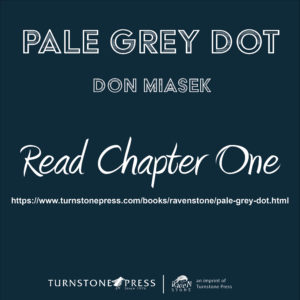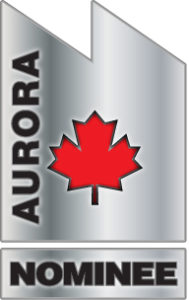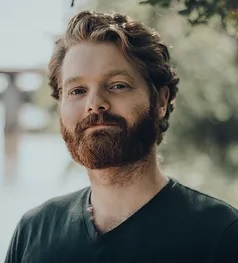
Today we have Jason Pchajek, author of the cli-fi cyberpunk novel, Bounty.
Jason will be in Toronto signing books at Bakka-Phoenix on March 22nd, 2024, at 5:30 PM.
Jason can be found at:
- Website: www.jasonpchajekwriting.com
- Twitter: @JasonPchajek
- Instagram: jasonpchajek
- Tiktok: @jasonpchajek
Don: Could you tell us a little about yourself and how you got into writing?
Jason: For sure! I’m a Canadian science fiction and fantasy author from Winnipeg, Manitoba. I’ve also been a writer since I was a kid. It’s always been something I love, story-telling has always been my passion, and it’s something you see pop up in one way or another throughout my life.
I’ve got a Master’s Degree in sociology, worked as a sports journalist, have written academic articles, have worked as a radio host and play-by-play commentator in hockey, and now during the day I do research in the corporate world and at night write novels. Spending all my time crafting stories and narratives, just in different forms and for different reasons haha.
Let’s start with the most important question: why set your dystopian, sci-fi cyberpunk-esque novel in Winnipeg of all places?
Quite a simple answer honestly, Winnipeg is my hometown. When I set out to write Bounty, I really wanted to give Winnipeg–and Canada at large–a place in science fiction and cyberpunk literature. Too often we get the same looks at futuristic versions of Los Angeles, New York, Tokyo, London, etc. but I wanted to bring a bit of Canadian flavor to the genre landscape.
I’m also a huge fan of the Halo game series, and one of the things I think Bungie did that was cool, is they set a large swath of the Earth-based content in Halo 2 and 3 in Africa, more specifically Kenya. Imagine being a young Kenyan, and seeing your nation represented by one of the biggest media franchises ever!
In Bounty, Winnipeg is a vast, vertical city with nearly a dozen sublevels. Tell us about your inspiration and goal in portraying the city.
There are really two main points to this.
First, again, I wanted to try something new. A lot of cyberpunk/futuristic depictions of cities tend to go the mega-city route with tall skyscrapers and big blocks, and I thought “why not the opposite?”
Second, is there’s a genre-based reason. As discussed in the novel, cities expanded vertically in the Bounty universe to preserve the available land for agricultural, climate, and power-generation measures. More land (and greenspace) to capture carbon. More space to build solar and wind farms. More space for agriculture to feed a massive population.
Then, growing down instead of up was done to protect humanity from the intensity of climate disaster (while also letting the super rich buy up all the surface land that remained).

As a bounty hunter, main character Nikos Wulf has an AI partner in the form of ODIN. Do you feel AI buddies like ODIN are what the future holds for us in real life?
Quite possibly, but probably not in our lifetime. It’s easy to think of AI–positively or negatively–as this magical technology that will continually improve into the future until we reach the singularity and it become a self-sustaining, ever-expanding system, but with what we currently know, and can do, around AI, I don’t think it’s possible. Already we’re seeing AI get dumber and dumber as more available information is fed into it, because on the whole, human beings are not as smart as we think we are.
One of my favorite topics at work has been “what basic logical or math problem did Chat GPT screw up today?” So, under the current system, AI requires human data to train off of, and we aren’t the best people to learn from hahaha.
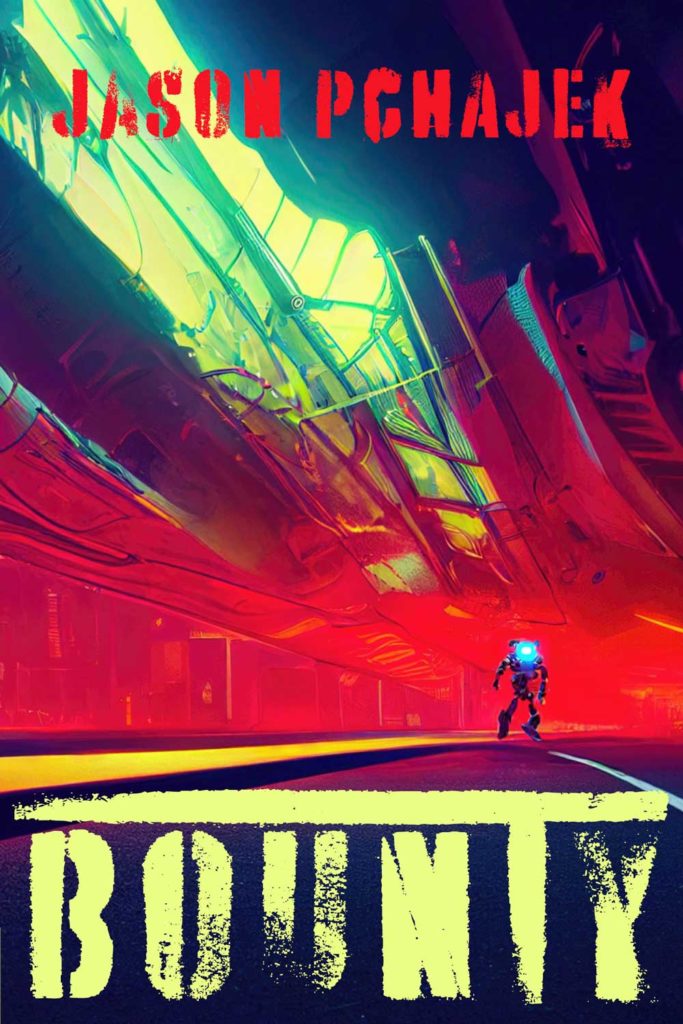
At one point, Nikos is asked to train another AI. Did you find yourself influenced at all by the rise and training of AI in real life?
Definitely not at first. I knew a serviceable amount about AI back when I wrote the first drafts of Bounty in 2016/2017, when LLMs and AI training was beginning to pick up steam, but like everyone else, I was not prepared for the explosion that’s happened in the past couple years. ChatGPT and all the other major AI programs/models were just arriving on the scene when Bounty was in its final phases of production, leading to the launch in September 2023. But heading into Bounty 2, 3, and beyond? For sure.
In defiance of the dystopian setting, universal healthcare still exists in Canada, eh?
That it does. And it should stay that way! But honestly, when I was thinking of the 2120s Canada, and the continued growth of neoliberal economic and social policies in our world that led to my conception of that future, Universal Healthcare always felt like the Golden Goose that was untouchable.
Like, no matter what, we could sell off everything else, but not that. It’s too tied into the Canadian identity to even begin considering it. You even see it in political discussions today, healthcare privatization is death for any political party that brings it up openly.
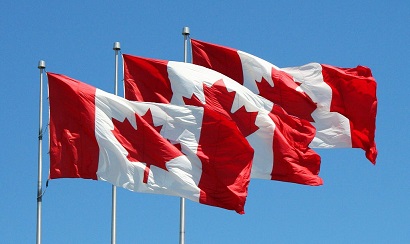
Despite his best efforts, Wulf gains a real bad track record of bringing in suspects alive. Will he ever get his stats back up?
Not to spoil too many things but…no. It’s all downhill for him and the crew I’m afraid.
I’ll keep the spoilers light, but Wulf often works with Argo, a huge corporation involved in AI research and fighting eco-terrorism. That’d normally code for “obvious bad guys”, yet Nikos genuinely considers their point of view in a serious, rational manner. Did you have to balance the idea of Huge Corporation = Good vs Huge Corporation = Bad?
Totally! I took the perspective of, he’s been raised to deify this business, it’s part of his heritage, it’s his family’s legacy, so he’s never going to have a totally clear, unbiased view of it. I think that’s interesting to consider, right? In sci-fi (and particularly cyberpunk) we almost always see “Corporation Obviously Bad” but what would happen if a character genuinely thinks the corporation is good, and needs to be dissuaded from that view–somewhat violently. Nikos is a smart guy, but he’s an idealist and an optimist, like most people today, and seeing your own biases is hard.
Given the themes of climate change and Wulf being a part of the Eco-Terror Taskforce, was this a personal motivation for you? Environment-wise, are we heading in the right direction in real life?
Climate Change has been an obsession of mine since I was a kid. I wore out our copy of An Inconvenient Truth as a kid, and have spent a lot of my time learning about climate change and climate technology solutions purely for interest. Bounty was originally a standard cyberpunk story, focused much more on themes of political and economic inequality, and as a consequence of how I think and what I believe about the future, climate themes wound their way into the story. But I can credit Melissa, my wonderful editor over at Ravenstone, for suggesting the pivot to cli-fi, which I took to with quite a fervor I think haha.
On the question of if we’re going in the right direction…yes and no. We’ve already demonstrably made an impact in lessening the damage of climate change, we’re not looking at the doomsday scenarios predicted 20-30 years ago, and that comes from the concerted efforts by governments, activists, and businesses that have bought-in to the idea of climate consciousness and green economies. There are some incredible technologies out there that will continue to shape our lives going into the future. But there’s still SO much work to do. Climate Change is here, it’s undeniable, and we didn’t stop it. So now it’s a mitigation game.
How do we make ourselves resilient? How do we make sure things don’t get worse? How do we keep pushing forward from here?
Big businesses are already pivoting, and have been quietly for decades because they saw the writing on the wall. The Oil and Gas industry are a big topic on being major carbon creators, but even they are making a pivot to synthetic and hydrogen fuels, and lobbying the federal government to subsidize their green energy projects. Do you think they just started researching and planning these things today? No, they’ve been quietly preparing for many years.
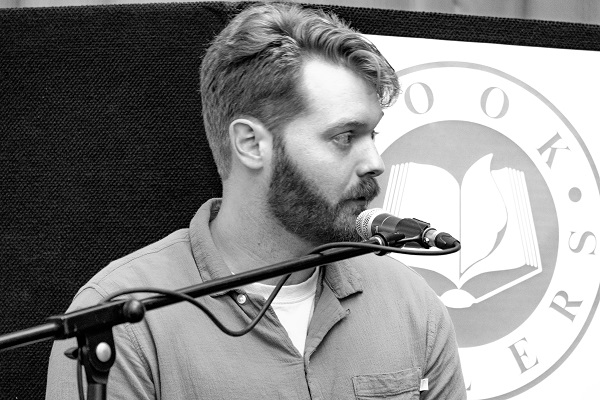
One technique I saw you use was having Nikos (either by himself or with his friends) recapping the clues and events that led him to his current situation. Was this the result of feedback from beta readers, a preemptive decision by you, or something else?
A bit of both actually, it came from notes by my editor just so we had places where the reader could stop, breathe, and catch up with what’s going on, and it was also totally a chance for me to recoup and make sure I had all my facts straight haha. When you write mysteries, it can honestly be daunting, and you can second-guess yourself quite a lot when it comes to believing your story will be understood, so those moments really helped.
Between his troubles with his family’s corporation and his relationship with his father, how much of Nikos Wulf’s back story did you have planned out?
There’s a lot there. It’s something that will be continually explored in future sequels and prequels. There were a few chapters in Bounty that ultimately got cut that dealt with more of Nikos’s past as a private military contractor, and his tours around the globe getting caught up in climate change-induced conflicts. So, I’m excited to explore those in the future, along with what I know of Nikos’s career as a bounty hunter.
You’ll be in Toronto at Bakka-Phoenix on March 22nd. How have you found the experience of launching a book with Ravenstone?
It’s been incredible! The team at Turnstone/Ravenstone are incredible to work with. From the first time I spoke with Jamis, I knew they were the right fit for me, and my story. Their focus on nurturing homegrown Manitoba, and more generally Canadian, writers is admirable, and something sorely lacking in the publishing industry today. There’s a lot of expectation to be big and perfect out the gate, so it was wonderful to work with a publisher that was more focused on helping me become the best writer I could be, and my novel was the best version of itself, than anything else. It’s been a life-changing experience!
Also, very excited to be doing a signing in Toronto. Definitely another one of those “oh, I’m a writer!” moments haha.

There’s clear plot hooks at the end of Bounty. Does this mean we’re in for a sequel? What does the future hold for the Bounty-verse?
Oh yes. The Argite Cycle is just getting started. I’ve got book 2 written, and during the summer got some of book 3 written as well before I pivoted to another project. The future of the Bounty-verse is bright. There are so many stories to be told within the city of 2120s Winnipeg, and the wider world, that I’m so excited to explore. I’ve definitely got plans for more books!
Thanks for taking the time to share with us, Jason!

